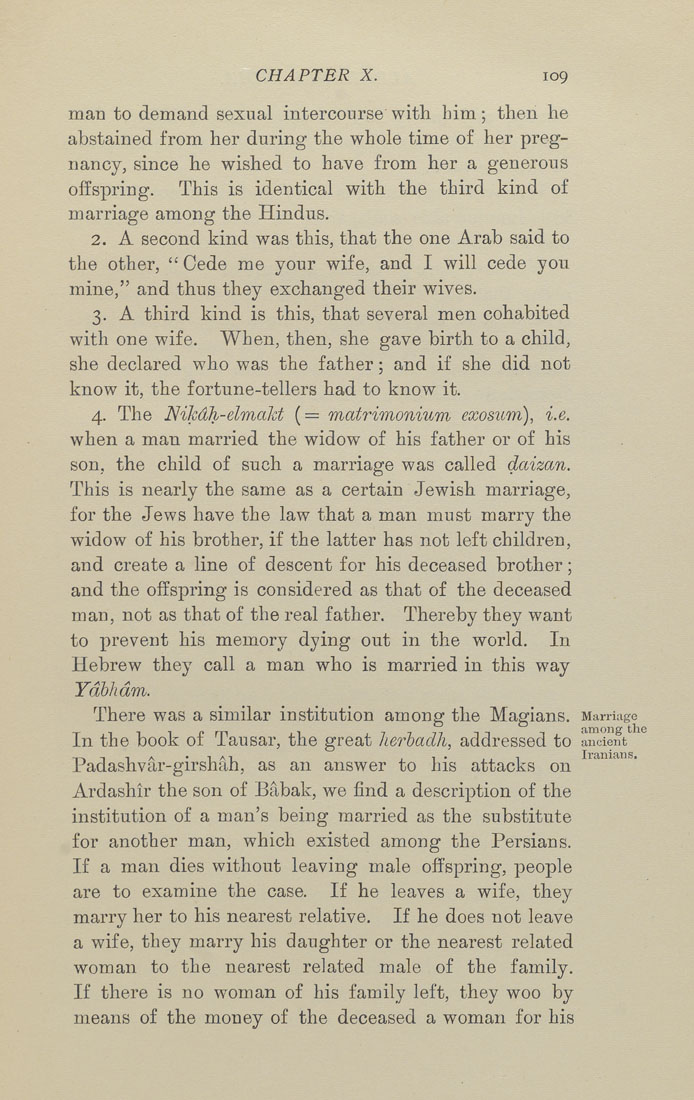Bīrūnī, Muḥammad ibn Aḥmad, Alberuni's India (v. 1)
(London : Kegan Paul, Trench, Trübner & Co., 1910.)
|
||
|
|
|
|
| Page 109 |

CHAPTER X. 109 man to demand sexual intercourse with him; then he abstained from her during the whole time of her preg¬ nancy, since he wished to have from her a generous offspring. This is identical with the third kind of marriage among the Hindus. 2. A second kind was this, that the one Arab said to the other, "Cede me your wife, and I will cede you mine," and thus they exchanged their wives. 3. A third kind is this, that several men cohabited with one wife. When, then, she gave birth to a child, she declared w^ho was the father; and if she did not know it, the fortune-tellers had to know it. 4. The Nikdh-elmakt (= matrimonium exosum), i.e. when a man married the widow of his father or of his son, the child of such a marriage was called daizan. This is nearly the same as a certain Jewish marriage, for the Jews have the law that a man must marry the widow of his brother, if the latter has not left children, and create a line of descent for his deceased brother; and the offspring is considered as that of the deceased man, not as that of the real father. Thereby they want to prevent his memory dying out in the world. In Hebrew they call a man who is married in this way Ydhhdm. There was a similar institution among the Magians. Marriage In the book of Tausar, the great herhadh, addressed to ancient Padashvar-girshah, as an answer to his attacks on Ardashir the son of Babak, we find a description of the institution of a man's being married as the substitute for another man, which existed among the Persians. If a man dies without leaving male offspring, people are to examine the case. If he leaves a wife, they marry her to his nearest relative. If he does not leave a wife, they marry his daughter or the nearest related woman to the nearest related male of the family. If there is no woman of his family left, they woo by means of the money of the deceased a woman for his |
| Page 109 |







